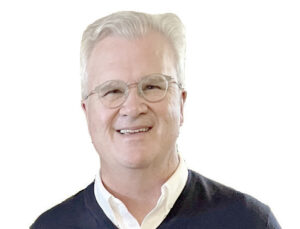The present age has sometimes been labeled as “post-modern,” “post-industrial,” “post-literal,” and even “post-scientific.”
Although it doesn’t most often arrive in the printed word, in many ways, we live in the age of the narrative.
It is easily visible in the way we communicate the weather report. Not many years ago, it was scientifically given. The actual temperature; the relative humidity; the barometric pressure in numbers rather than just high or low, usually specific to a local area rather than broad swaths on a map — all were dramatically pointed out by the weather person. T oday, it is entertaining and certainly more a narrative of what could be, rather than what is. It is often extended further into the future with dire warnings of what could be.
The same style of narrative information is not unique to one source of information, but in many ways, is the preferred way of communicating.
When there is a social issue to promote, we have learned the narrative is far more effective than the facts, or even the history.
Certainly, our political arena is much more about narrative than about specifics.
It seems that narrative is often chosen because of its ability to move us.
Narrative is also something that involves our emotions more than our reasoning, and it certainly is more likely to remain in our memory.
Most of these narratives are not a matter of choice.
They are simply part of the environment of the present time. There is, however, another narrative that is up to us to choose.
Because of its source, power, reliability, and unending value, we are wise in availing ourselves of it.
It is the narrative of the Bible.
If we consider the number of human contributors over the course of 2,000 years in formation, not to mention the additional 2,000 years of handwriting, translating, printing, analysis and study — the narrative is both timeless and still in development.
Although we often encounter the Bible in relatively short passages, appropriate to a time or place, the narrative is something much larger.
It takes in the entire history of humanity and brings us an ongoing account of all God has done for us throughout history.
It also includes both the successes and failures of individuals and nations; the virtues, and the foibles, of many. At the same time, all of these are woven into an inspired narrative that, of its nature, impacts our lives.
We have been given a way to choose this narrative to navigate all the other narratives that fill our present-day environment.
It is this: “Let the word of Christ dwell in you richly, as in all wisdom you teach and admonish one another, singing psalms, hymns, and spiritual songs with gratitude in your hearts to God.” Colossians 3:16.
Pastor Fr. Bill Hodgson is the priest at St. Edward Catholic Church in Cassville. He may be reached at 417-847-4948 or stedwardcassville@gmail.com.





